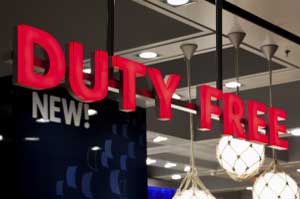Customs bonded warehousing is secured areas where imported dutiable merchandise may be stored, staged, or undergo manufacturing operations without payment of duty for up to 5 years from the date of importation. Here’s a primer on customs bonded warehousing for your imports.

Bonded Warehouses
Customs bonded warehouses fall under the control of U.S. Customs. These imported products are warehoused without paying any duties at that time of importation. Once the goods enter the warehouse the proprietor of the warehouse incurs the liability for the merchandise under the warehouse bond. The bond will be removed once the merchandise is exported, withdrawn to be placed on a ship or airplane, destroyed under CBP supervisions; or removed for use within the U.S. after payment of the duty.
Types of Bonded Warehouses
Class 1: Government Owned Warehouses
Buildings owned or leased by the government are used when there is a pressing need for the merchandise to be stored while it undergoes examination by the CBP, and if the merchandise is under seizure or awaiting final release from the CBP custody. This merchandise is only stored on the premises at the discretion of the CBP and is held under “general order.”
Class 2 and Class 3: Private or Public Bonded Warehouses
Some importers house merchandise that belongs to the consignee in a private warehouse. This warehouse is known as a private bonded warehouse, typically a class 4 or 5, and solely owned by the proprietor.
Next are public warehouses that are used wholly for storage of the imported merchandise.

Class 4: Bonded Yards or Sheds
Bonded sheds or yards are for the storage of big and bulky merchandise such as boats or cars. Other items would include small buildings, stables and tanks that accommodate imported liquid merchandise in bulk.
Class 5: Bonded Bins
Used for the storage of grain. These may be parts of buildings or elevators but must be separated from the rest of the building.
Class 6: Warehouses for Exportation
These are warehouses for storage and export of articles made from imported materials or those subject to the internal-revenue tax. They are typically for home consumption. Also includes home consumption or export of cigars and tobacco products.

Class 7: Smelting and Refining
These are bonded warehouses specifically for smelting and refining imported metal-bearing materials for domestic utilization.
Class 8
There are specific bonded warehouses for the cleaning, organizing, repacking, or altering the state of the merchandise, but not the manufacturing of, the imported merchandise. This is done under CBP supervision and at the cost of the proprietor.
Class 9: Duty Free Bonded Warehouses
Duty-free bonded warehouses are for selling merchandise for use outside the customs region. The merchandise is owned by the proprietor, sold and delivered to an airport or other export point for the individuals who leave from the customs region or foreign destinations at the airports. This is different than International travel merchandise or goods that are sold conditionally duty-free on board an airplane and they are considered not a duty-free store.

Class 10: International Travel Merchandise
Goods sold duty-free on aircraft, not at duty-free stores, which is covered by another class.
Class 11: Bonded Warehouses: General Order Merchandise (G.O.)
General Order Merchandise is unclaimed merchandise that has been entered for 15 days after its arrival in the U.S. Bonded warehousing is accessible at many of the harbors and global shipping locations from nearly any country.
Why should you use a bonded warehouse?
Duties are not collected until the goods are removed for sale to the consumer. You, as the importer, control the money until the goods are sold domestically. If no buyer is found domestically, you can then export the goods with no obligation to pay the duty.
Note: Merchandise arriving into the U.S. for distribution must have proper preparations made for entry into the U.S. This must be at the CBP port of entry where you plan to file your duties and credentials.
Is your business importing merchandise? If so, now is a good time to make sure your imports are warehoused appropriately, with all the correct paperwork, to avoid additional charges or delays. Here at AFC International, we provide you with the tools and knowledge to help you manage your imports more effectively. Get a quote today!


Leave a Reply
You must be logged in to post a comment.